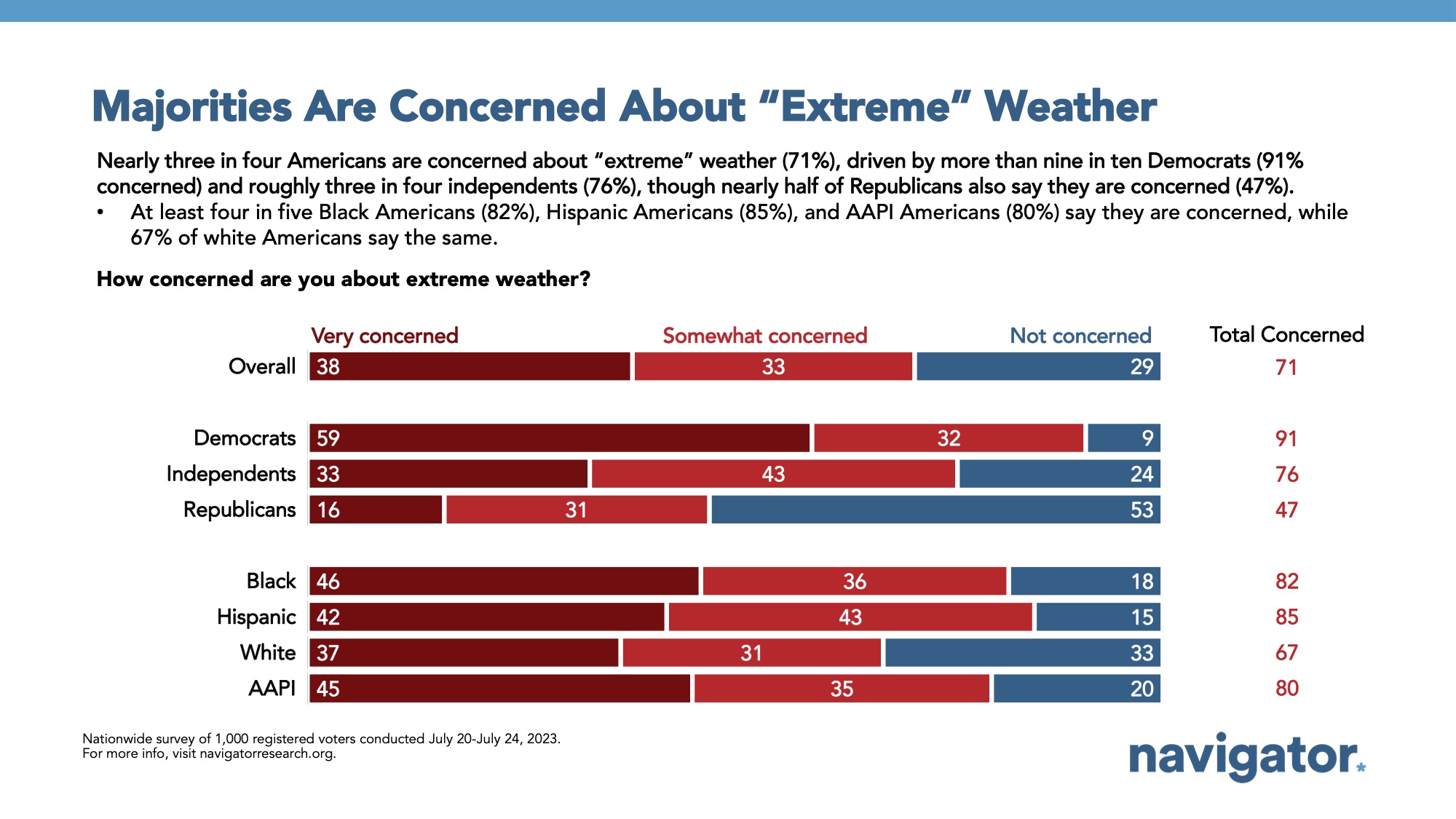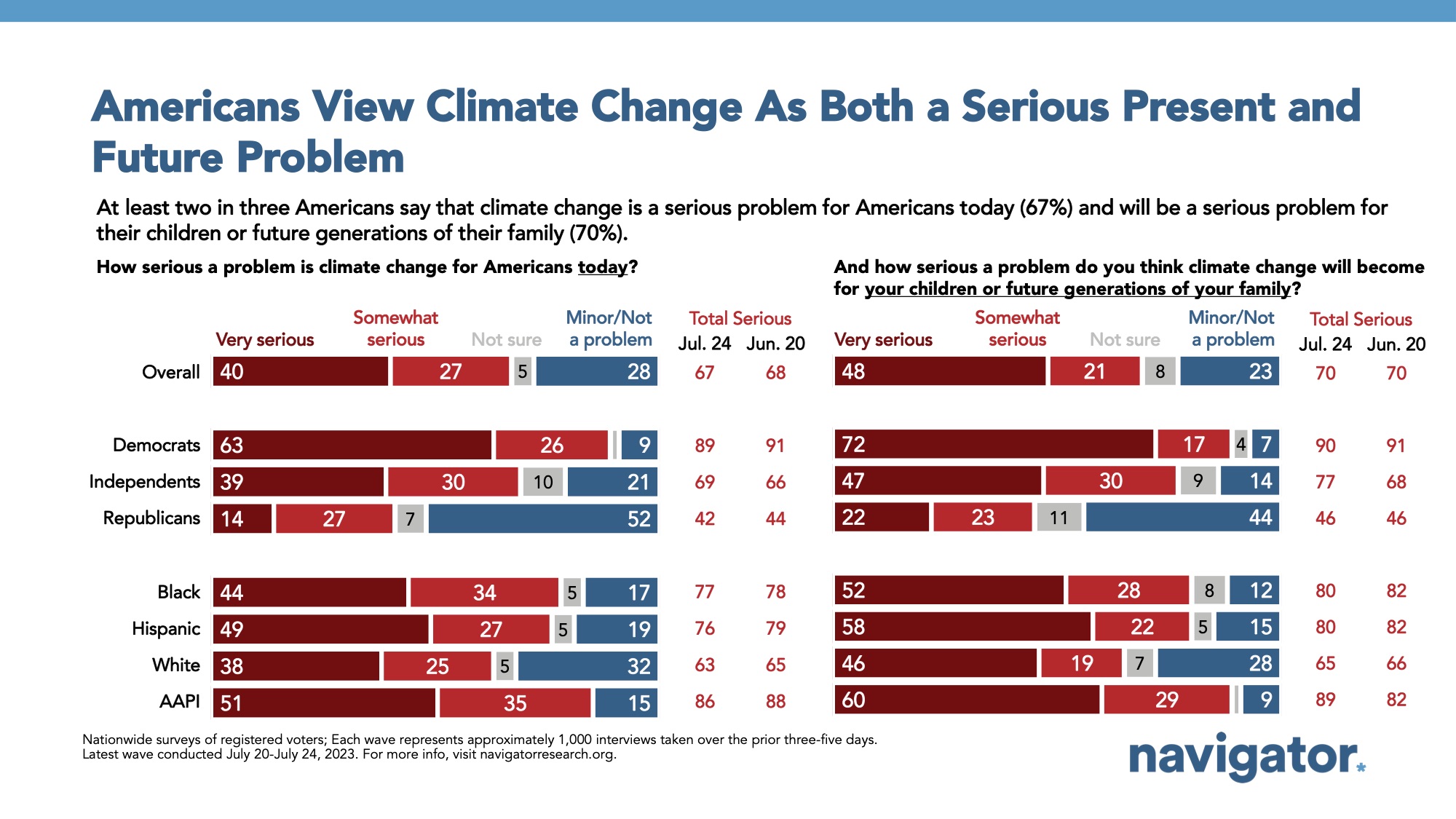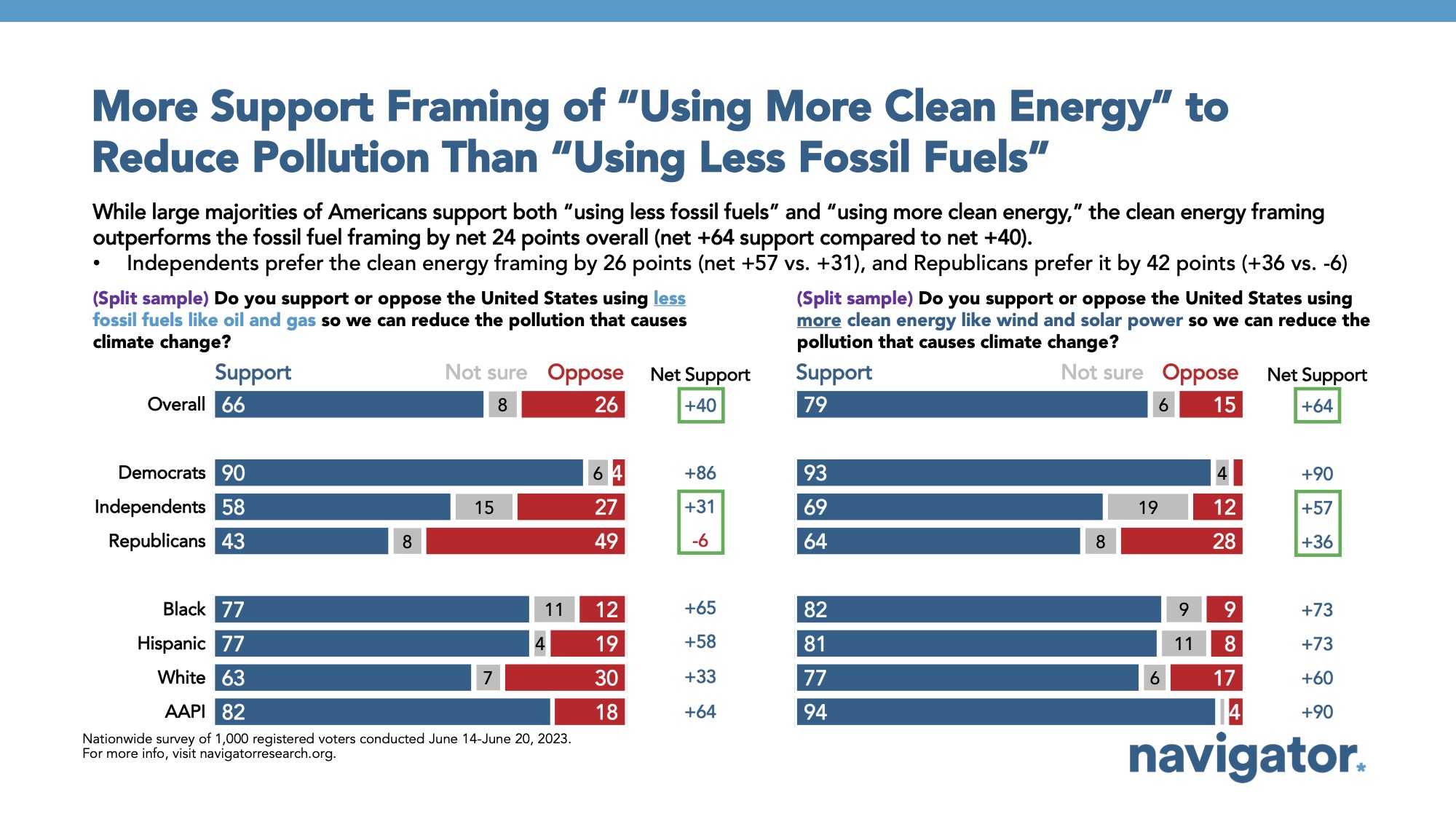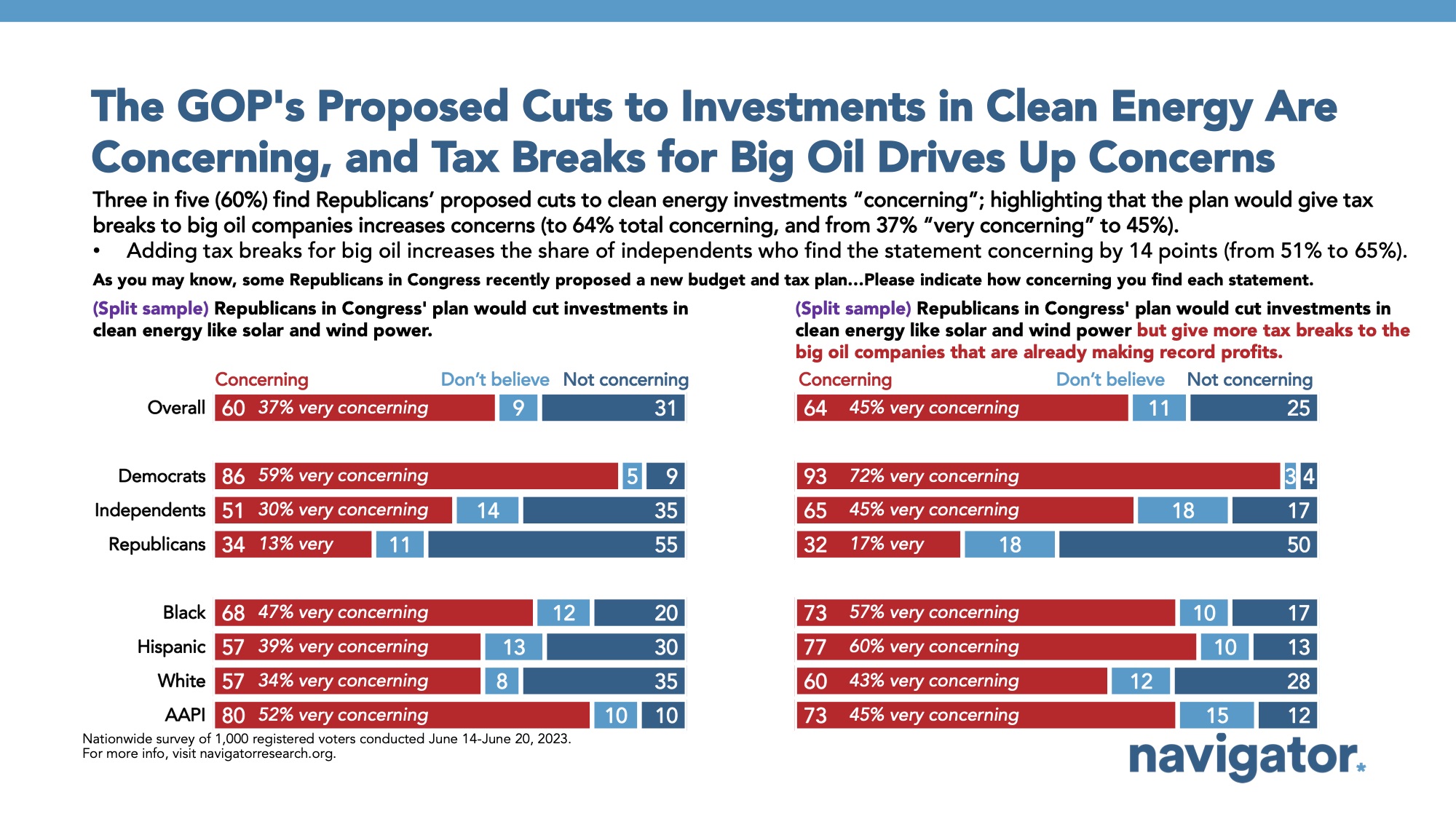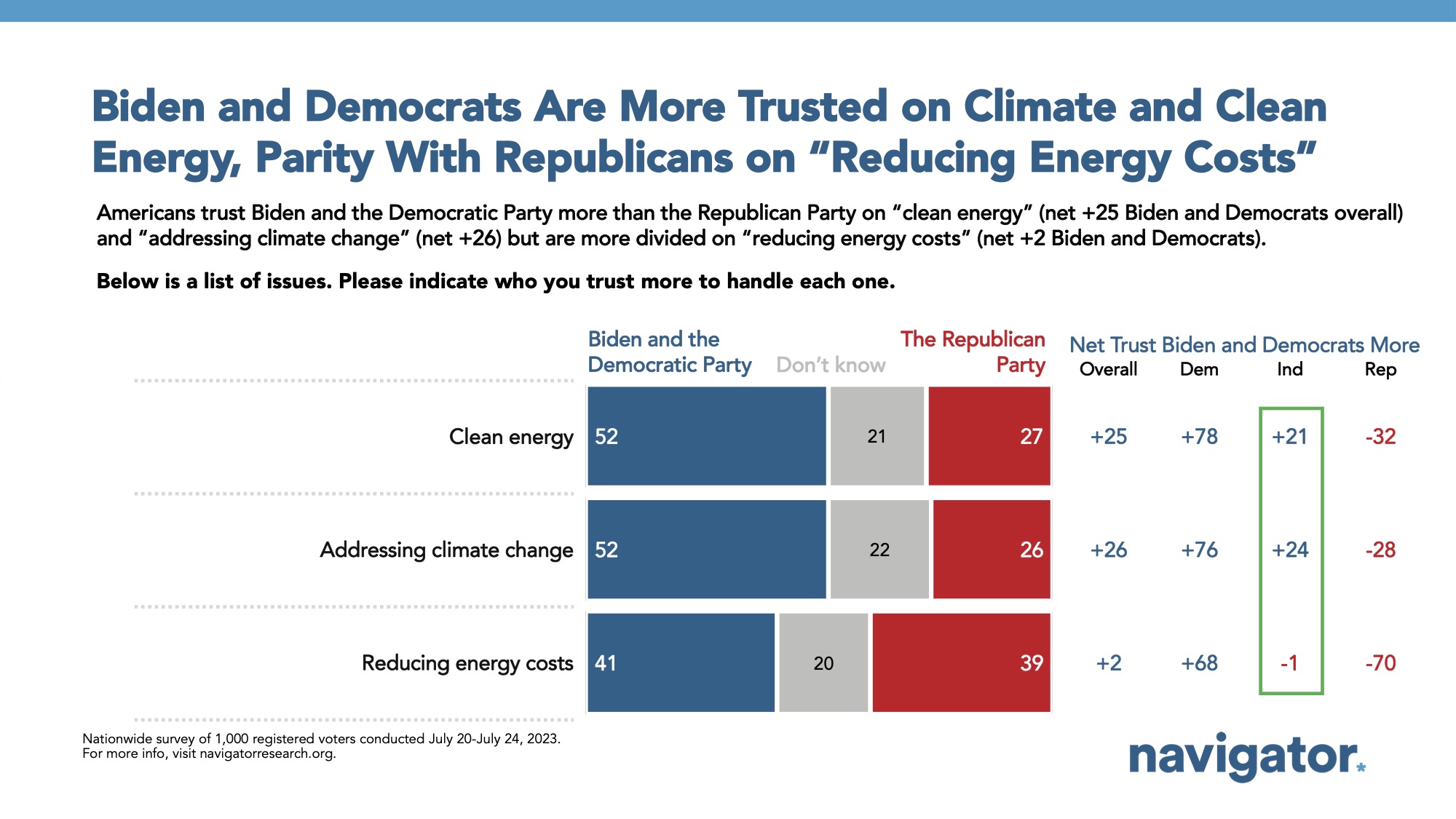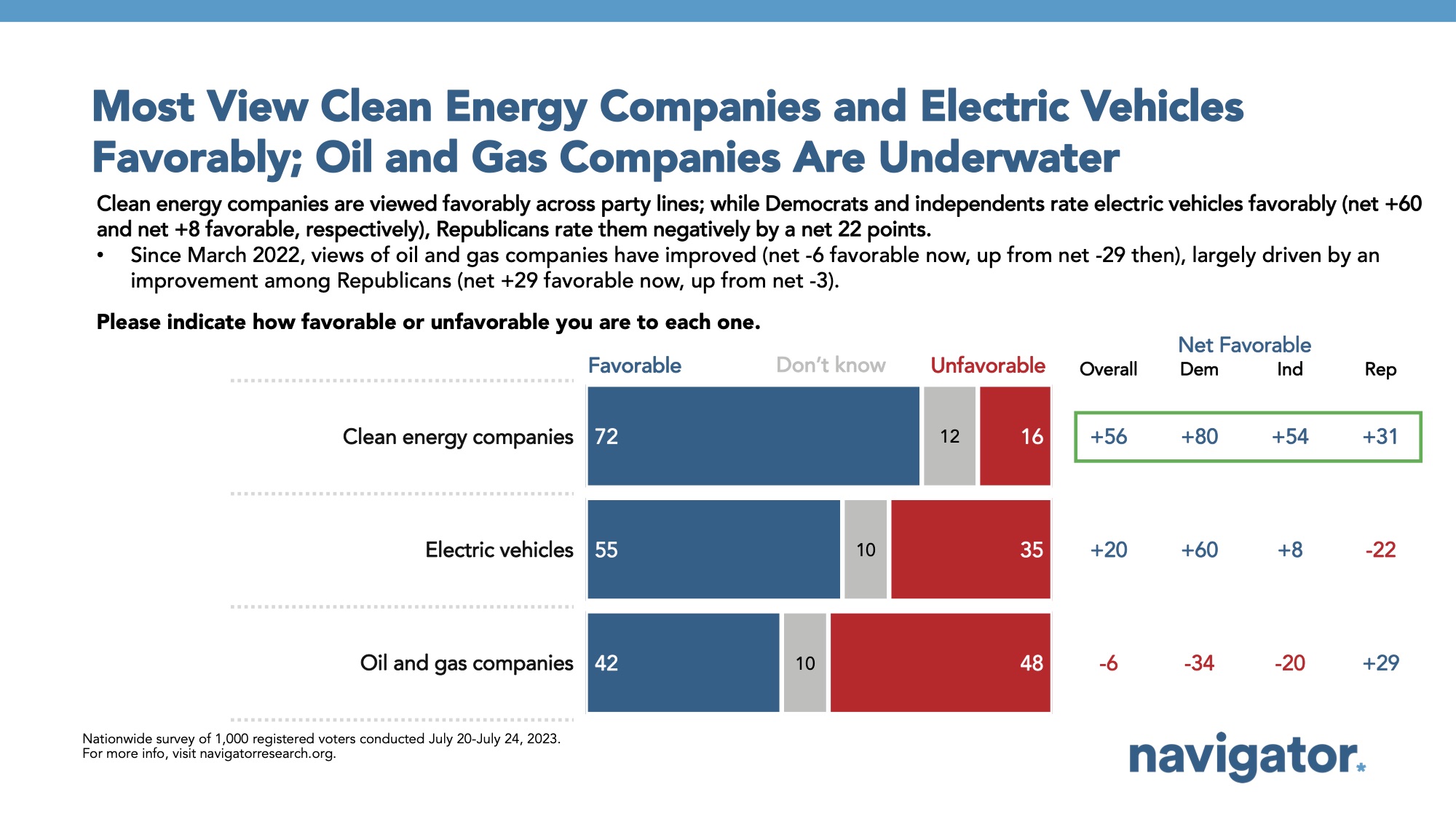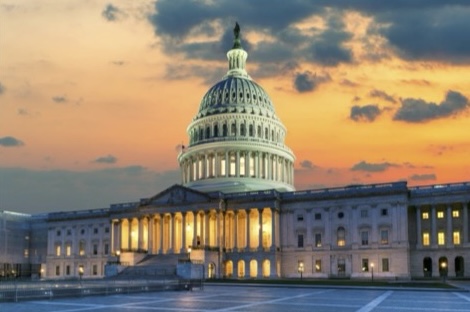Climate Change: A Guide for Advocates
This Navigator Research report contains polling data on Americans’ latest perceptions of extreme weather in the United States, including whether this summer’s weather has been similar to years past, concern around climate change in the country and globally, and which party Americans trust more to handle clean energy and address climate change.
Most Americans say this summer’s weather has been different from years past, with four in five describing it as hotter.
Half of Americans say this summer’s weather in their own community has been different than years past (51 percent), while nearly three in five say it has been different globally (58 percent), an 8-point increase since last summer when 50 percent said the same. Among those who say the weather has been different, four in five attribute this to the weather being hotter than years past (79 percent, which is 6 points higher than at the same time last summer), while three in ten say there have been more wildfires (31 percent) and droughts (29 percent).
- As Americans across the country experience historic heat waves, there has been an increased perception of hotter weather: in mid-June, half of Americans (49 percent) attributed the different summer weather as hotter weather, jumping 30 points to 79 percent in this poll. More than four in five Americans living in the South (86 percent, up 8 points from last summer) and West (81 percent, up 3 points from last summer) say this weather has been hotter.
- There has been a 6-point increase in the share of Americans living in the Northeast (35 percent) and a 7-point increase in Midwesterners (32 percent) who attribute different summer weather to more wildfires since last summer. The share of Americans living out West attributing different weather to wildfires has declined immensely since last summer (from 66 percent to 36 percent now).
Americans say climate change is a serious problem now and for future generations.
Among Americans who say the weather is different this summer than years past, two in three blame temperatures rising as a result of climate change (67 percent), a 10-point increase since just last month (57 percent), while just 16 percent say the changes in weather are due to natural patterns. By a 16-point margin, half of Americans overall say the world’s climate is “changing mostly as a result of human activity such as the burning of fossil fuels” (49 percent), including three in four Democrats (73 percent), a plurality of independents (42 percent), and a quarter of Republicans (24 percent). A third of Americans say the climate is “changing mostly as a result of natural patterns in the environment” (33 percent), with half of Republicans believing this (50 percent).
- Seven in ten Americans express concern about extreme weather (71 percent), including nine in ten Democrats (91 percent), three in four independents (76 percent), and nearly half of Republicans (47 percent). Two in three similarly say that climate change is a serious problem for Americans today (67 percent), with even more Americans viewing climate change as a serious problem for future generations (70 percent).
Americans overwhelmingly support the United States using more clean energy and trust President Biden and Democrats over Republicans to handle clean energy and address climate change.
In a split-sample test, two in three Americans support the United States using less fossil fuels like oil and gas so we can reduce the pollution that causes climate change (net +40; 66 percent support – 26 percent oppose), with an even greater share of support for the United States using more clean energy like wind and solar power so we can reduce the pollution that causes climate change (net +64; 79 percent support – 15 percent oppose). Support is stronger for shifting to clean energy among Republicans (net +36, compared to net -6 for using less fossil fuels) and independents (net +57, compared to net +31 for using less fossil fuels). Democrats are overwhelmingly supportive of both reducing use of fossil fuels (net +86) and using more clean energy (net +90).
- By double-digit margins, Americans trust Biden and Democrats more than Republicans to handle the issue of clean energy (net +25; 52 percent Biden/Democrats – 27 percent Republicans) and address climate change (net +26; 52 percent Biden/Democrats – 26 percent Republicans). Biden and Democrats retain a slim margin for reducing energy costs over Republicans (net +2; 41 percent Biden/Democrats – 39 percent Republicans).
- The Republican proposed budget and tax plan, which would cut investments in clean energy, is viewed as concerning by three in five Americans (60 percent), and even more so when including context that in addition to cutting investments in clean energy, it would “give more tax breaks to big oil companies already making record profits” (64 percent concerning).
- A majority of Americans view clean energy companies (net +56; 72 percent favorable – 16 percent unfavorable) and electric vehicles (net +20; 55 percent favorable – 35 percent unfavorable) favorably, while oil and gas companies are viewed unfavorably by a 6 points (42 percent favorable – 48 percent unfavorable).
About The Study
Global Strategy Group conducted public opinion surveys among a sample of 1,000 registered voters from July 20-July 24, 2023 and 1,000 registered voters from June 14-June 20, 2023. Each survey had approximately 100 additional interviews conducted among Hispanic voters, 75 additional interviews conducted among Asian American and Pacific Islander voters, 100 additional interviews conducted among African American voters, and 100 additional interviews conducted among independent voters. The survey was conducted online, recruiting respondents from an opt-in online panel vendor. Respondents were verified against a voter file and special care was taken to ensure the demographic composition of our sample matched that of the national registered voter population across a variety of demographic variables.

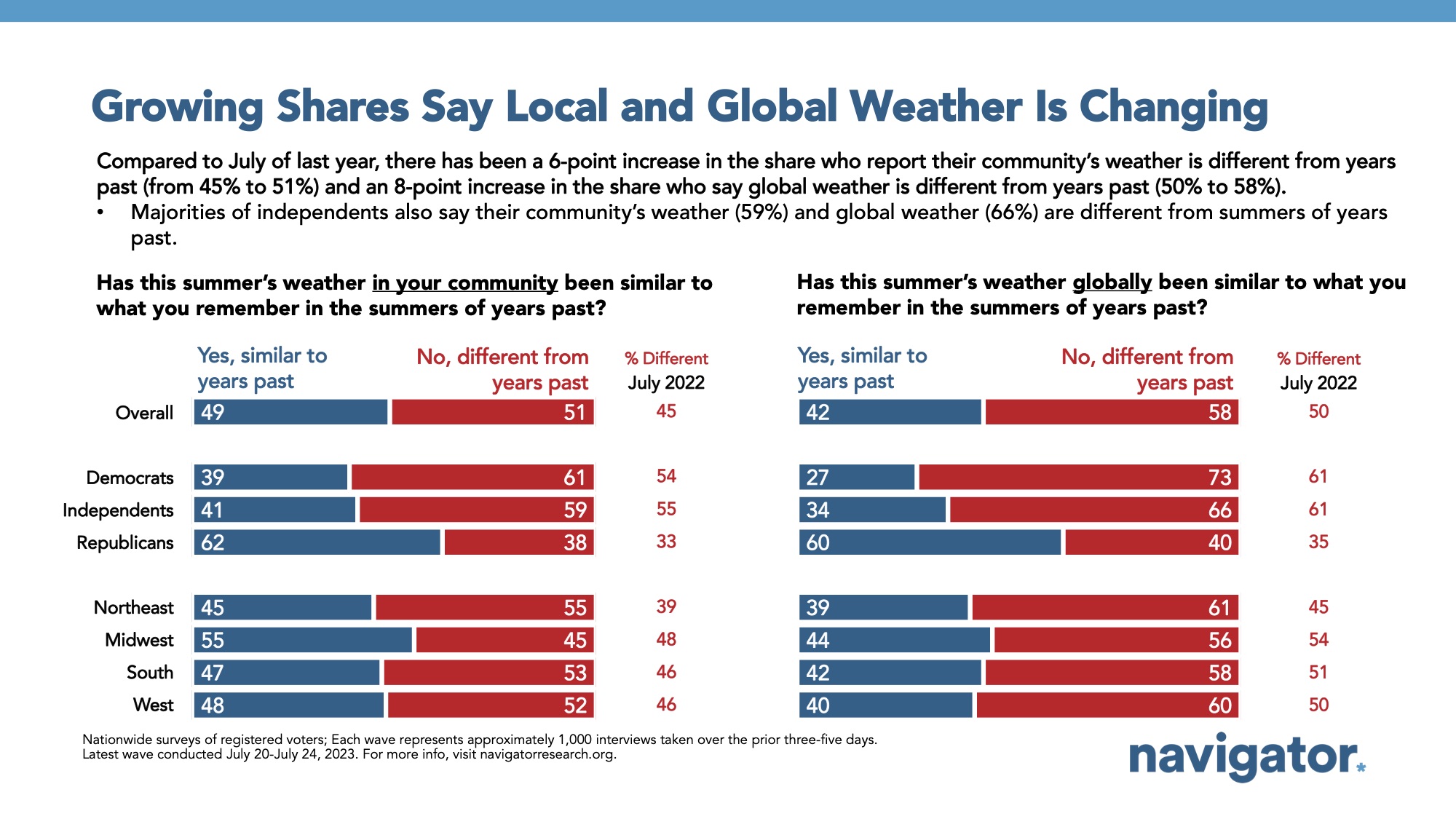
![Survey results to the following prompt: [If different from years past in your community] How has the weather in your community changed recently from what you remember in years past?](https://navigatorresearch.org/wp-content/uploads/2023/07/July-27-Americans-Identify.jpg)
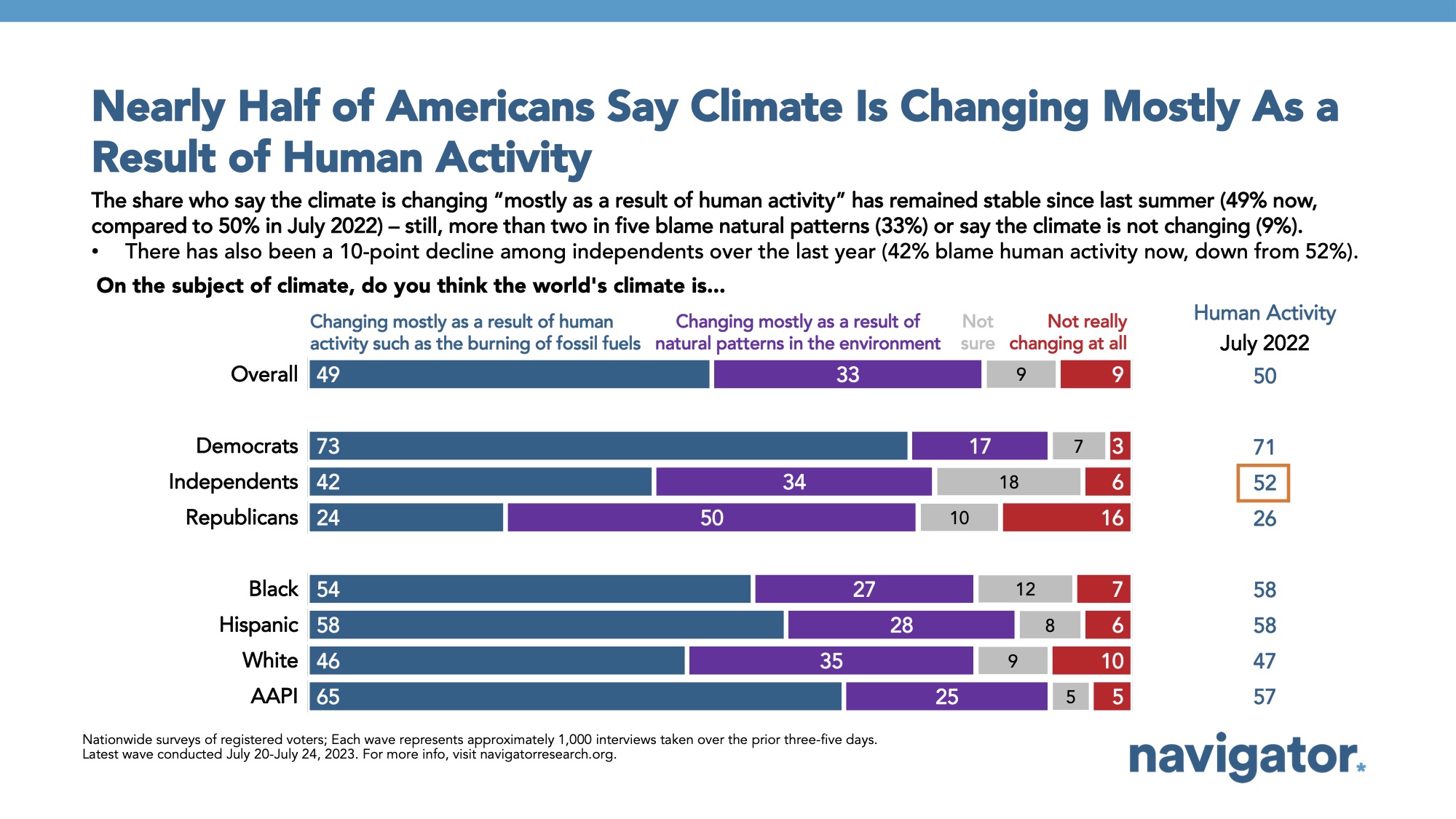
![Survey results to the following prompt: [If different from years past in your community] What do you blame more for these types of changes in weather?](https://navigatorresearch.org/wp-content/uploads/2023/07/July-27-Among-Those.jpg)
